Public Communication Standing Committee Holds 2nd Quarter Meeting
- Consultation & Advice Division
- 05-26-2024
Public Communication Standing Committee Holds 2nd Quarter Meeting
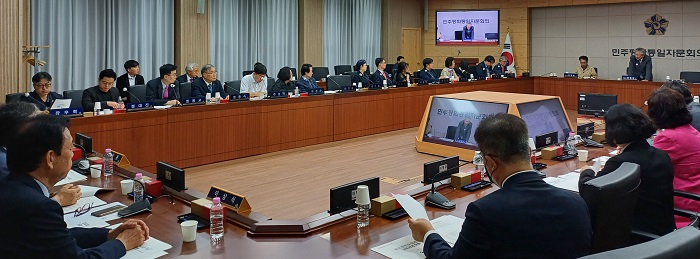
▲ A view of the meeting venue
The PUAC Public Communication Standing Committee (Chairman: Chung Yong-sang) held a meeting for the second quarter policy recommendation on May 22 in the conference room on the first floor of the Secretariat. The meeting, attended by 39 members of the committee, consisted of a keynote presentation on "How to Build a Consensus for Liberal Democratic Unification" by Cho Han-beom, Chair Research Fellow at the Korea Institute for National Unification, a panel discussion by Park Hye-kyung, Professor at the Graduate School of Clinical Pharmacy at Cha University, Son Kwang-gwang, Executive Director of the National Council of Civil Organizations for North Korean Human Rights, and Chun Byung-gil, CEO of Yes Innovation Consulting, and a general discussion in which all subcommittee members participated.
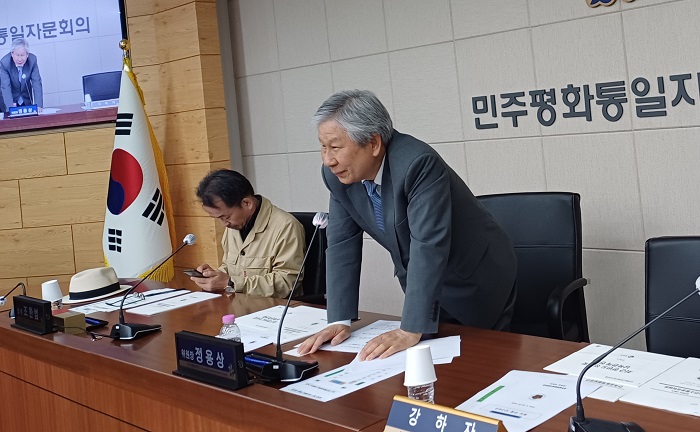
▲ Opening remarks by Chairman Chung Yong-sang
In his opening remarks, Chairman Chung Yong-sang said, "North Korean issues such as North Korean human rights cannot be solved by the government alone. It requires the united efforts of not only the government and neighboring countries, but also the people." He hoped that the second quarterly meeting of the Public Communication Standing Committee would serve as a venue for in-depth discussions on issues that stand in the way of reunification, including the internal conflict in the South.
The opening remarks were followed by the keynote presentation and discussions in earnest.
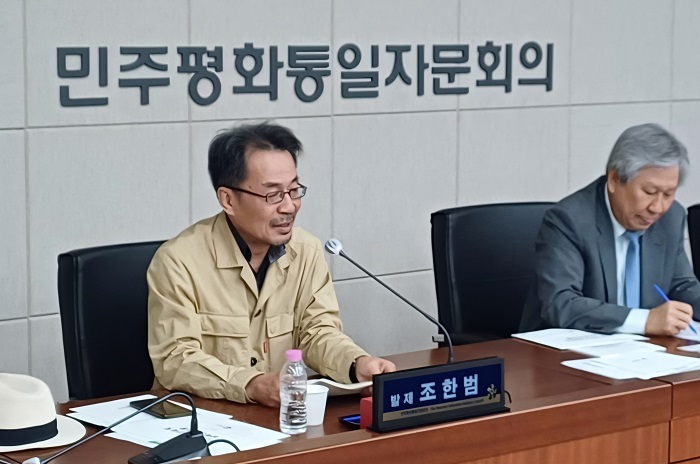
▲ Keynote presentation by Cho Han-beom, Chair Research Fellow at the Korea Institute for National Unification
Keynote speaker Cho Han-beom, a chair research fellow at the Korea Institute for National Unification, said, "As the sole legitimate government of the Korean people, the Republic of Korea should aggressively seek peaceful reunification." Cho called for "an aggressive public campaign on the legitimacy and necessity of peaceful reunification." He also emphasized the need to "build a national consensus for peaceful reunification based on the South Korean Constitution, drive national unity, and implement a strategy tailored to the North Korean people that separates the Kim Jong-un regime from the North Korean people."
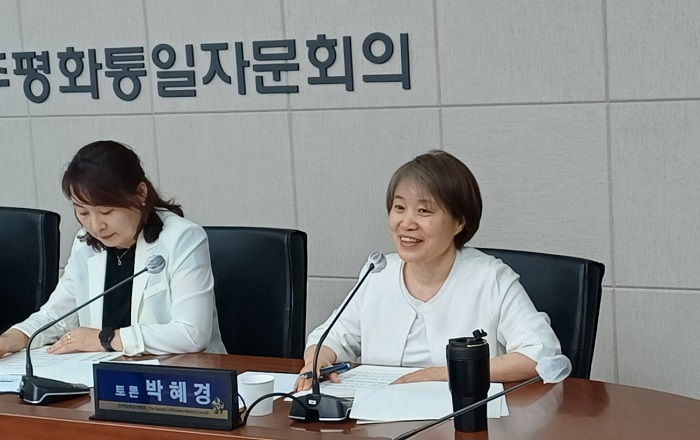
▲ Panel discussion by Park Hye-kyung, Professor at the Graduate School of Clinical Pharmacy, Cha University
In the panel discussion, Professor Park Hye-kyung at the Graduate School of Clinical Pharmacy of Cha University, said, "In order to resolve the internal conflict in the South, it is necessary for the concerned parties to communicate in a various manner.” Park added that such efforts should be preceded by the provision of "a clear direction of the government's policies and concrete policy measures. The professor also emphasized that "as an organization that comprise people with diverse views and positions, the PUAC should actively identify all the sectors of society that need communication and promote communication with them."
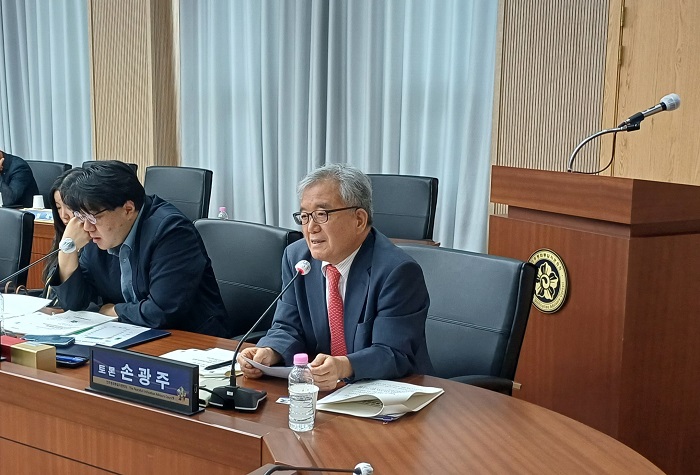
▲ Panel discussion by Son Kwang-ju, Executive Director of the
National Council of Civil Organizations for North Korean Human Rights
Son Kwang-ju, Executive Director of the National Council of Civil Organizations for North Korean Human Rights, also emphasized that "the basic direction of the liberal democratic unification policy is to look at North Korea's dynastic dictatorship and 25 million North Koreans separately." "Externally, we need to actively promote our reunification plan as a 'freedom and human rights community reunification plan' that is in line with the UN Charter and the universality of humanity," Son said. He also suggested that the 'ethnic community reunification plan' should include the phrase "The Republic of Korea will actively promote the freedom and human rights of the North Korean people in cooperation with the UN and the international community."
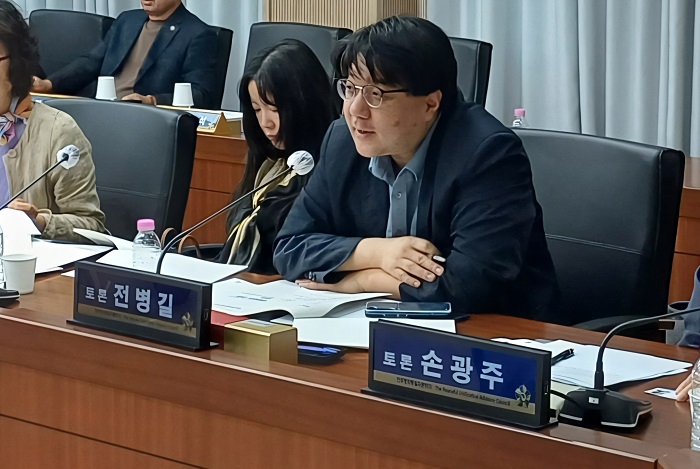
▲ Panel discussion by Chun Byung-gil, CEO of Yes Innovation Consulting
Lastly, Chun Byung-gil, CEO of Yes Innovation Consulting, said, "When North Korea opposes unification, we need to continue to emphasize the vision of unification." Chun said that South Korea needs an open attitude to embrace youth, multicultural families, etc. who have been relatively marginalized in the unification discourse. “We should strive to position unification as a future issue that is connected to everyday life, not just a grand discourse,” he said.






▲ Highlights of the General Discussion
The panel discussion was followed by a general discussion. Members of the standing committee suggested the following: discuss peace policies in parallel with reunification policies, establish institutional mechanisms for people and private organizations to interact with North Korea in a stable manner, adhere to the principle of separating the Kim Jong-un regime and the North Korean people, and devise strategies tailored to the North Korean people.
Meanwhile, the opinions expressed in the meeting of the Public Communication Standing Committee will be reviewed and published as a policy recommendation report for the second quarter.
-
How satisfied are you with the information you have reviewed?







